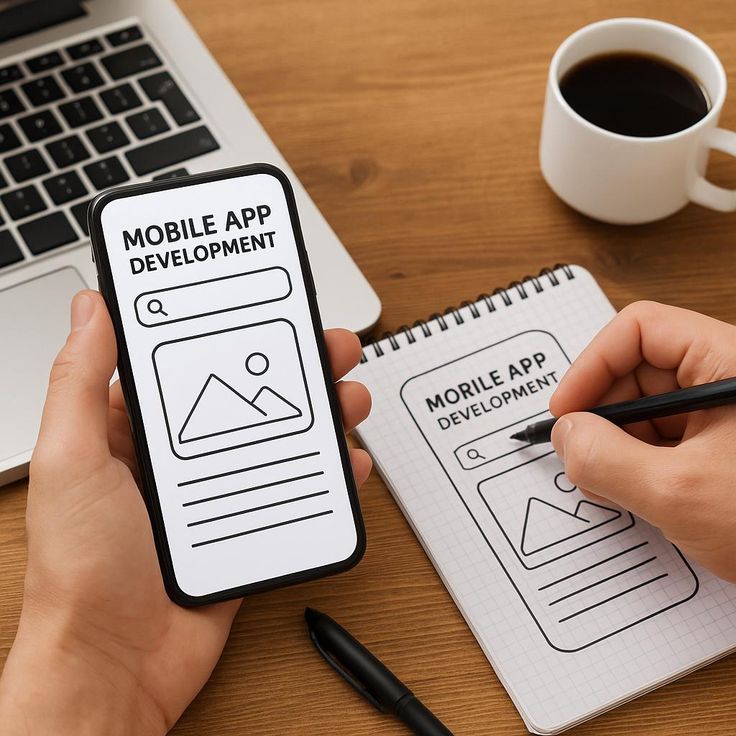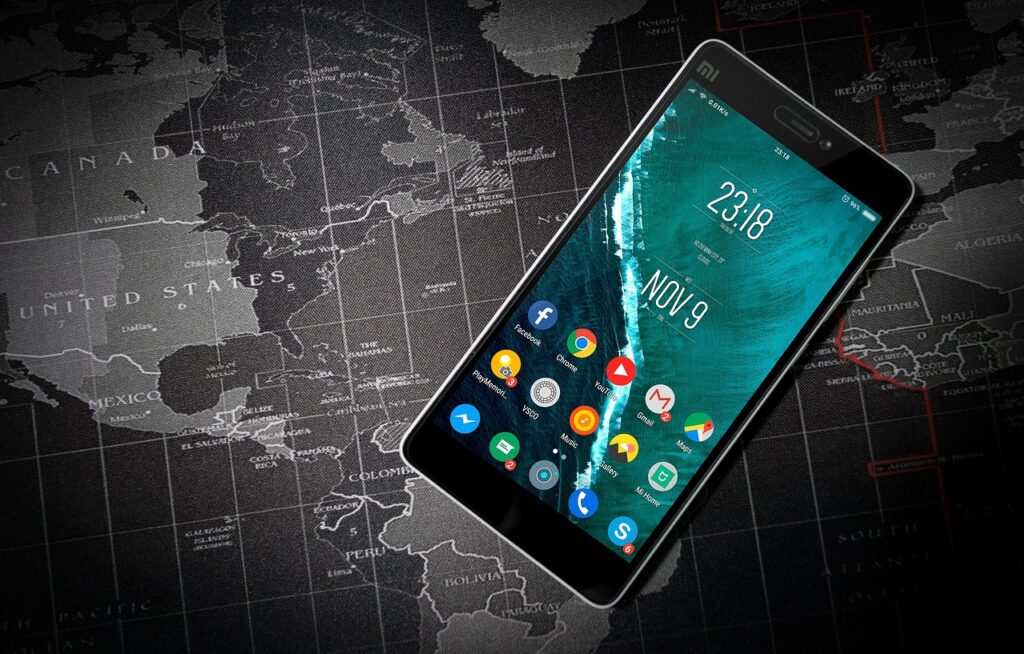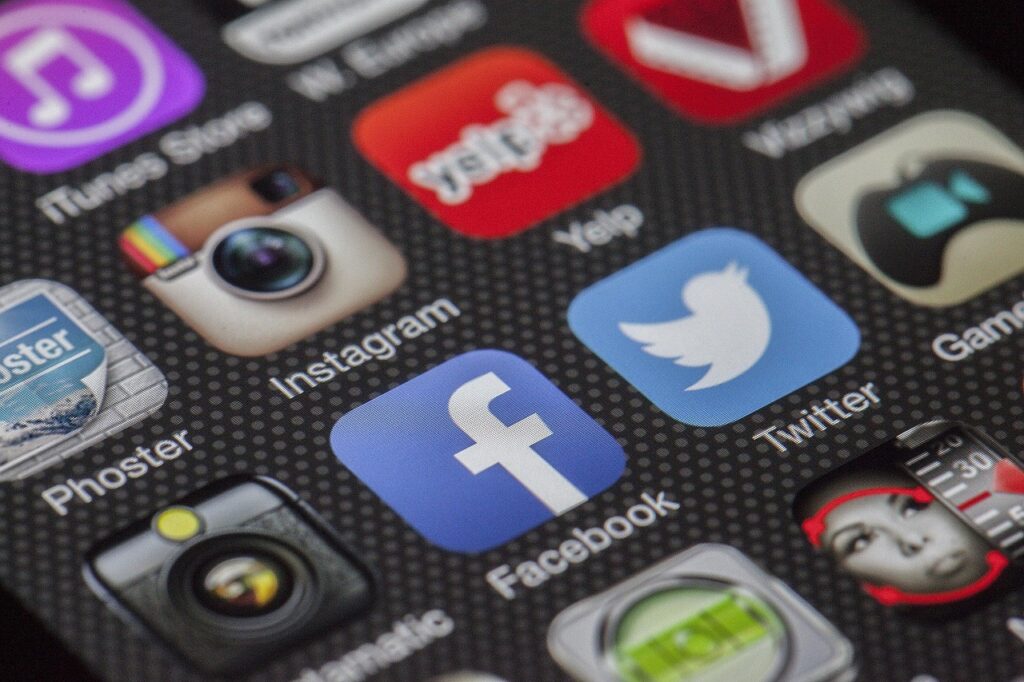
Mobile apps have moved from being just “nice to have” to being the center of our everyday lives. By 2026, apps won’t just sit on your phone; they’ll run your routines, power your payments, track your health, and even create your content. With AI, 5G, AR/VR, and smarter cross-platform frameworks, the next wave of app innovation is already here as it’s changing how people live, shop, and connect.
Let’s explore the top mobile app ideas and trends for 2026. If you’re a business owner, developer, or just curious about what’s next, this will give you a clear look at where apps are going, why it matters, and how you can stay ahead.

Big changes in tech don’t land out of nowhere. They build quietly, stack up, and then flip the industry all at once. 2026 is set to be one of those turning points, with multiple forces coming together to reshape how apps are built, used, and experienced. Here’s a look at the shifts taking shape that are about to make the biggest impact.
And the numbers back it up:

Looking at 2026, certain mobile app ideas are pulling ahead. The reason is simple: they match real needs, connect with modern living, and ride on the latest tech changes. Some of them might even surprise you with how quickly they’re becoming part of everyday life.
Instead of only responding, voice apps are getting better at figuring out what you’ll need next. Think of an assistant that books your doctor’s appointment, suggests a cheaper utility provider, or controls your smart home without your repeated commands. With natural language processing getting smarter, 2026 could be the year voice becomes a daily driver.
Retailers are betting big on AR. Imagine trying on sneakers, lipstick, or sunglasses virtually before buying. By cutting down returns and making shopping fun, AR-powered shopping apps are set to explode in e-commerce.
Fitness trackers are old news. The next wave is personalized health apps that analyze your wearable data in real time and suggest changes. Like hydration alerts, nutrition tweaks, or stress-reduction exercises.
As crypto and digital wallets go mainstream, blockchain apps will lead to secure, fast, borderless payments. Expect peer-to-peer transfers, global remittances, and even smart contract transactions baked into mobile apps.
Language learning and skill apps will get personal. With AI, these apps will adapt to your pace, correct mistakes instantly, and even simulate live conversations.
Money management will go beyond spreadsheets. AI-based finance apps will study spending, give budgeting nudges, and suggest investments – all from one dashboard.
Task apps will shift from “reminders” to predictive action engines. Think of an app that pre-books your Uber when you leave work late or blocks time in your calendar when it notices a busy streak. They’ll learn patterns over time, turning everyday routines into smooth, almost invisible actions.
PWAs bridge mobile and web. Fast-loading, offline-capable, and light, they’ll continue growing as a budget-friendly yet powerful option for businesses. For users, this means quick access without heavy downloads, while businesses get apps that work across devices with lower costs.
Inspired by WeChat and Gojek, super apps bundle messaging, payments, shopping, and bookings. Western markets are catching up fast, making this a massive 2026 play. With more people wanting one app that handles most daily needs, super apps could change how people manage life and work in a single hub.
With smartwatches and smart glasses maturing, expect more apps built just for wearables, health, messaging, payments, and real-time alerts.
Other creative ideas include container tracking apps for logistics, on-demand fuel delivery, home security, sleep quality apps, and even AR-based historical tour apps. Each one reflects real-world demand.

App development in 2026 is being shaped by shifts in technology, user behavior, and global demand for faster, smarter solutions. App design and function are now as important as the code itself. They’re building systems that react in real time, adapt to new devices, and keep privacy in focus. Businesses are also pushing for apps that balance speed with long-term stability, making development a strategic decision. Here’s a look at the core trends setting the pace for 2026.
Searches like “best frameworks for cross-platform apps in 2026” are rising for a reason. Developers are shifting to one codebase for iOS, Android, web, and even wearables. With Flutter, React Native, and Kotlin Multiplatform, apps can scale faster while keeping costs down.
AI is no longer just a feature; it’s the core. Apps in 2026 will be designed around AI from the ground up, enabling real-time personalization, predictive analytics, and generative content inside the app itself.
5G adoption means faster, low-latency apps. With edge computing, data will be processed closer to the user, powering real-time gaming, IoT, and video streaming.
AR and VR are moving well past gaming. In 2026, they’ll show up in medical training, classroom learning, and retail shopping, where trying before buying becomes part of the app experience.
The voice will go from “add-on” to “must-have.” From booking cabs to shopping, voice-first apps will become standard for accessibility and convenience.
For startups and small businesses, low-code platforms combined with AI will cut development cycles from months to weeks, making app launches faster and cheaper.
With regulations like GDPR and CCPA tightening, privacy-first apps will stand out. On-device data handling, encryption, and zero-trust frameworks will be baked in from day one.
As competition rises, ASO in 2026 will be as crucial as SEO. Keywords, visuals, and reviews will decide app visibility in both Google Play and Apple App Store.

The next wave of apps is less about fancy features and more about fixing real problems while staying findable in AI-powered search. Businesses that keep up with these changes will:
2026 isn’t far off, you know what? It’s the next launch window that is going to shock the world. AI-driven apps, AR shopping, and blockchain payments are opening big opportunities for builders and businesses ready to move. If you’re thinking about creating an app that really lands, focus less on chasing every new thing and more on picking the trends that match your audience, market, and goals. The future of apps is already moving fast. If you’re ready to make your move, turn to us for collaboration and services that make the future real.
AI-first, AR/VR, blockchain payments, health monitoring, and super apps will lead 2026 trends.
Voice assistants, AR shopping, finance management, and wellness apps show high profit potential.
AI will power personalization, predictive actions, smarter assistants, and real-time automation.
Yes. With 5G, AI integration, and booming digital payments, 2026 is a growth window.
Yes. AR/VR will expand into shopping, healthcare, education, and training sectors.
Cross-platform apps offer speed and lower cost, while native apps win for performance.
AI, Flutter, React Native, Kotlin Multiplatform, blockchain, AR/VR, and edge computing.
By using low-code platforms, AI-driven marketing, AR shopping tools, and secure payment apps.
